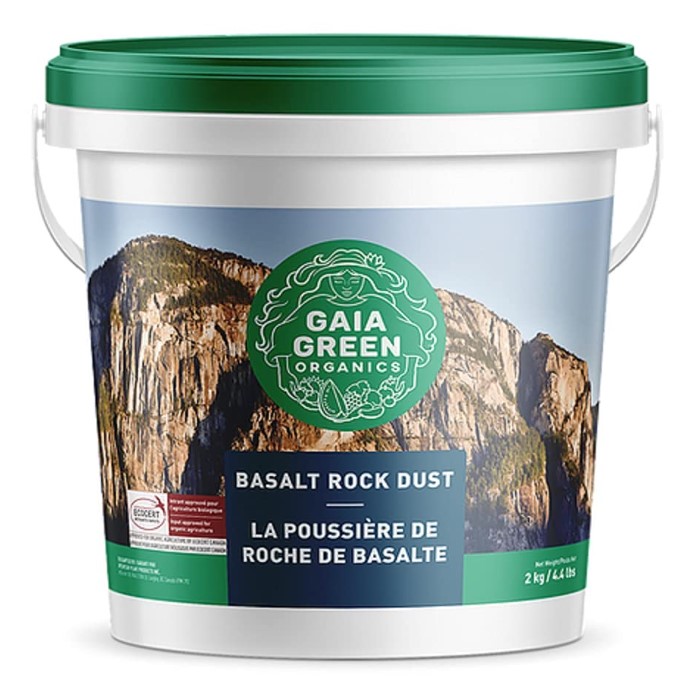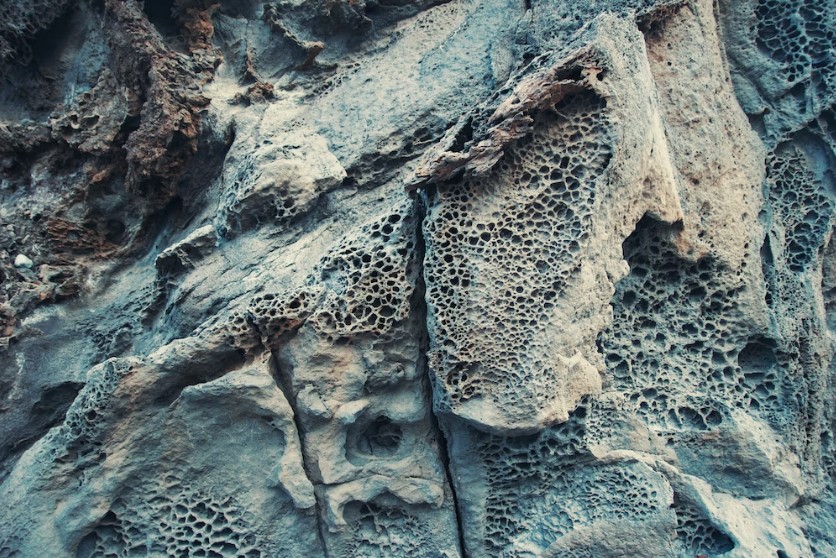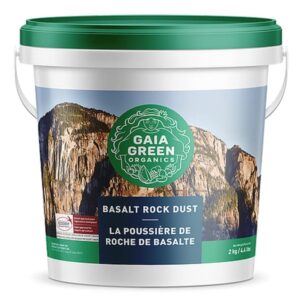When it comes to growing cannabis, every grower wants to achieve lush, healthy plants with maximum yields. One way to achieve this is by remineralizing the soil with basalt rock dust. This natural soil amendment has gained popularity in organic agriculture for its ability to provide essential minerals and nutrients to plants. In this article, we will explore the benefits of using basalt rock dust for growing cannabis and how it can improve soil health, plant growth, and overall yield.
Understanding Basalt Rock Dust
Basalt rock dust is a finely ground volcanic rock that is rich in essential minerals and nutrients. It is a natural and sustainable option for soil remineralization, as it is sourced from volcanic formations or quarries. Basalt rock dust contains minerals such as magnesium, iron, calcium, and phosphorus, which are crucial for the growth and development of cannabis plants. These minerals can enhance soil fertility, improve plant vigor, increase resistance to pests and diseases, and ultimately lead to bigger and more nutritious yields.
The History of Basalt Rock Dust for Growing
The use of basalt rock dust as a soil amendment dates back to ancient civilizations. Farmers in ancient Mesopotamia and Egypt recognized the benefits of using rock dust to improve soil fertility and enhance crop yields. In more recent times, the concept of remineralization gained traction, and basalt rock dust emerged as a popular choice for organic and sustainable agriculture practices. Pioneers like Julius Hensel conducted extensive research and experiments, demonstrating the positive effects of rock dust on plant growth and overall soil health.
Benefits of Basalt Rock Dust for Soil and Plants
- Enhanced Soil Structure: Basalt rock dust helps improve soil structure by increasing its ability to retain moisture and nutrients. This leads to better root development, nutrient uptake, and overall plant growth.
- Nutrient Supply: The slow release of essential minerals and nutrients from basalt rock dust ensures a steady supply to plants, promoting healthier growth and robust yields.
- pH Regulation: Basalt rock dust helps rebalance soil pH, creating an optimal environment for cannabis plants. This is crucial as pH levels can affect nutrient availability and plant health.
- Microbial Activity: Basalt rock dust promotes the growth of beneficial microorganisms in the soil, which play a vital role in nutrient cycling, decomposition, and overall soil health.
- Increased Resistance: The use of basalt rock dust can enhance the plant’s natural defense mechanisms, making them more resistant to pests, diseases, frost, and drought. This reduces the need for chemical interventions.
- Improved Nutritional Value: Remineralizing the soil with basalt rock dust can result in cannabis plants that are more nutritious, with enhanced flavors and aromas.
- Eco-Friendly: Using basalt rock dust reduces the dependence on synthetic fertilizers, pesticides, and herbicides, promoting sustainable and environmentally friendly agriculture practices.
How to Use Basalt Rock Dust for Growing Cannabis
Growing mediums play a pivotal role in providing a nurturing environment for cannabis plants. Integrating basalt rock dust into these mediums enhances their nutrient content, promoting robust plant growth and maximizing yields. Below is a comprehensive guide on incorporating basalt rock dust into various growing mediums, along with suggested ratios and considerations for blending it with other rock dusts.
1. Soil Mixtures:
- Ratio: For soil-based growing mediums, incorporate basalt rock dust at a rate of 1-5% by volume. This ensures a steady release of essential minerals throughout the plant’s life cycle.
- Blending with Other Rock Dusts: Experiment with combining basalt rock dust with granite rock dust or dolomite lime to achieve a more balanced mineral profile. Adjust ratios based on soil test results and the specific needs of the cannabis plants.
2. Coco Coir Substrates:
- Ratio: Mix basalt rock dust at a ratio of 1-3 tablespoons per gallon of coco coir. This provides a balanced mineral foundation while maintaining the excellent water retention properties of coco coir.
- Blending with Other Rock Dusts: Consider adding zeolite to the mix for improved water retention and nutrient availability. Adjust ratios based on the desired characteristics of the growing medium.
3. Hydroponic Systems:
- Ratio: In hydroponic systems, use a diluted basalt rock dust solution, aiming for a concentration of 50-200 ppm (parts per million) in the nutrient reservoir.
- Blending with Other Rock Dusts: Combine basalt rock dust with gypsum or phosphate rock to address specific nutrient requirements. Be cautious with ratios, as hydroponic systems require precise nutrient management.
4. Potting Mixes:
- Ratio: When preparing potting mixes, add 1-2 cups of basalt rock dust per cubic foot of mix for a well-balanced mineral content.
- Blending with Other Rock Dusts: Mix in limestone dust or gypsum to regulate pH levels and provide additional calcium. Adjust ratios based on the potting mix’s specific nutrient needs.
5. Composting and Rock Dust Blends:
- Ratio: When composting, add basalt rock dust at a rate of 5-10% by volume to enhance nutrient content.
- Blending with Other Rock Dusts: Experiment with combining basalt rock dust, granite rock dust, and phosphate rock for a comprehensive blend. Adjust ratios based on the compost composition and desired nutrient profile.
Tips for Effective Mixing:
- Uniform Distribution: Ensure even distribution of basalt rock dust throughout the growing medium to promote consistent nutrient availability.
- Soil Testing: Periodically conduct soil tests to assess nutrient levels and adjust rock dust ratios accordingly.
- Observation: Monitor plant health and growth to identify any signs of nutrient deficiencies or excesses, allowing for timely adjustments.
While various rock types can be used for remineralization, basalt rock dust stands out as an ideal source. It offers a broad spectrum of minerals in a natural balance, making it a superior alternative to chemical fertilizers.
Choosing the Best Rock Dust Supplement
While basalt rock dust has proven to be a valuable soil amendment for cannabis cultivation, it’s worth considering other rock-based supplements that may offer similar benefits or serve as potential replacements. Diversifying soil remineralization options can provide growers with additional choices based on availability, cost, and specific nutrient requirements.
1. Granite Rock Dust:
- Composition: Granite rock dust is rich in minerals like quartz, feldspar, and mica, offering a diverse range of nutrients.
- Benefits: Similar to basalt, granite rock dust can enhance soil structure, nutrient supply, and microbial activity.
- Considerations: Growers should be aware of the specific mineral composition of granite rock dust and adjust application rates accordingly.
2. Limestone Dust:
- Composition: Limestone dust is primarily composed of calcium carbonate, making it effective for pH regulation.
- Benefits: It can be used to counteract acidic soils, promoting optimal nutrient availability.
- Considerations: While suitable for pH adjustment, limestone dust may lack the broad spectrum of minerals found in basalt.
3. Dolomite Lime:
- Composition: Dolomite is a combination of calcium and magnesium carbonate, providing both essential minerals.
- Benefits: Dolomite lime can help regulate pH and supply calcium and magnesium for plant growth.
- Considerations: Care should be taken not to over-apply, as excessive magnesium levels may impact cannabis cultivation.
4. Gypsum:
- Composition: Gypsum contains calcium and sulfur, addressing specific nutrient needs.
- Benefits: Effective in improving soil structure, particularly in clayey soils, and supplying essential calcium.
- Considerations: Gypsum is not a comprehensive substitute for the wide range of minerals in basalt.
5. Phosphate Rock:
- Composition: Phosphate rock is a source of phosphorus, vital for flowering and fruiting stages.
- Benefits: Supports healthy root development and flower formation, complementing the effects of basalt.
- Considerations: Best used in conjunction with a broader-spectrum remineralization source like basalt rock dust.
6. Zeolite:
- Composition: Zeolites are volcanic minerals that can help retain water and nutrients.
- Benefits: Enhances water retention, aids in nutrient availability, and promotes microbial activity.
- Considerations: Zeolite can be a valuable addition alongside basalt rock dust to address specific soil characteristics.
Choosing the Right Blend:
When considering alternatives to basalt rock dust, it’s essential for growers to understand their soil’s specific needs and deficiencies. Experimenting with combinations of different rock-based supplements may allow growers to tailor their soil remineralization approach to meet the unique requirements of cannabis cultivation. Additionally, consulting with local agricultural experts or conducting soil tests can provide valuable insights into the specific mineral needs of the soil, guiding growers in selecting the most effective rock-based supplements for their cannabis gardens.
Conclusion
Basalt rock dust is a powerful tool for cannabis growers looking to improve soil health, plant growth, and overall yield. By remineralizing the soil with basalt rock dust, growers can provide essential minerals and nutrients to their cannabis plants naturally and sustainably. The benefits of using basalt rock dust include enhanced soil structure, improved nutrient supply, pH regulation, increased microbial activity, resistance to pests and diseases, improved nutritional value, and eco-friendliness. With proper application and the use of high-quality rock dust, cannabis cultivators can unlock the full potential of their gardens and achieve lush, green, and thriving plants.





I had some doubts until I read the article.